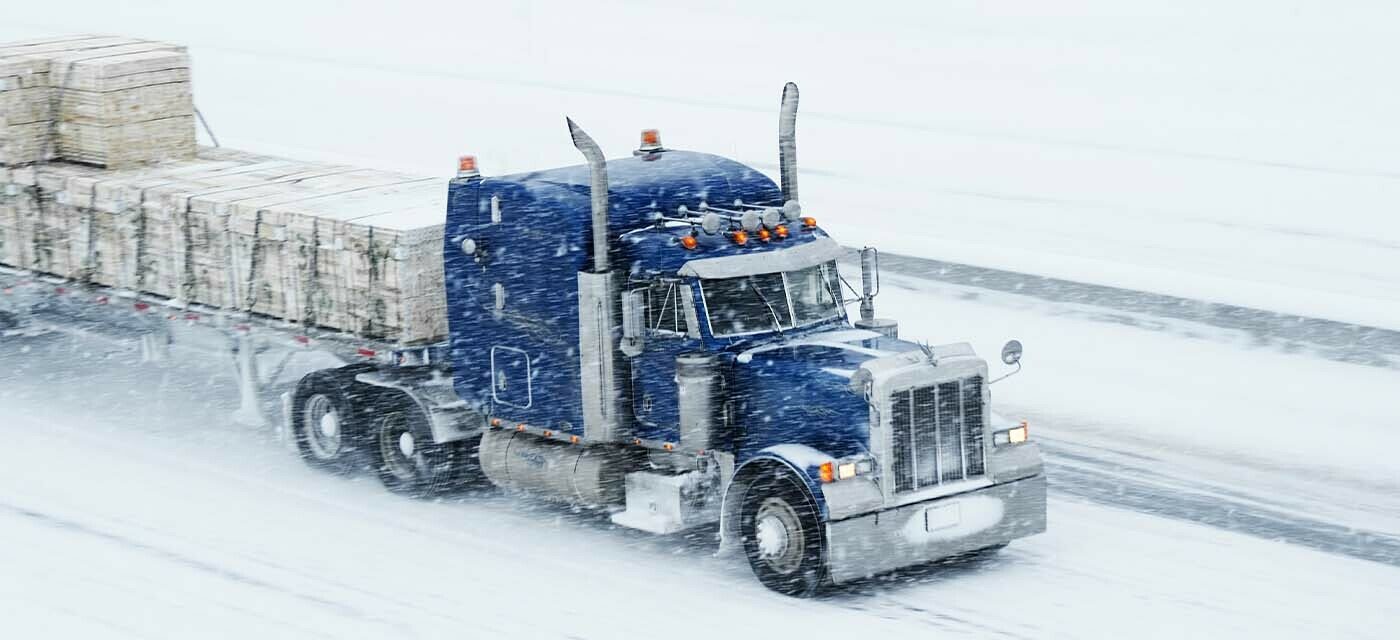
Keeping an Eye on Winter Tire Pressure
Between Black Friday and Christmas, the economy and trucking industry runs faster than ever during the last quarter of the year. The 2021 holiday season saw sales upwards of $859 billion and an estimate of over a billion packages delivered between the USPS and FedEx. For the truck drivers and fleet managers responsible for making all the deliveries during the holiday season, a tire pressure monitoring system should be at the top of their wish list.
Winter brings cold, snow, ice and slush. With all these factors combined, road conditions are less than ideal for drivers, putting a premium on safe driving practices. Proper tire inflation is one of the most important aspects to making sure that everyone and everything gets to its destination safely and on schedule.
How Underinflated Tires Impact Driving Safety
Underinflated tires are a serious matter. It’s estimated to be the number one cause of tire failure, with pieces of blown tires the leading road hazard, causing an estimated 11,000 accidents and 600 deaths per year.
In many parts of North America, winter is the most critical time of year for truck drivers to check tire inflation pressures. While it’s important to keep an eye on tire pressure year round, it’s not uncommon for tires to experience a potential loss of up to 5-15 PSI as winter temperatures set in. That’s enough pressure loss to sacrifice handling, traction, fuel economy and durability.
Twenty-five percent of all dual tire assemblies have tires that differ in pressure by more than 5 PSI. While 5 PSI may not sound like much, a tire that is just 5 PSI lower creates a 5/16” difference in diameter. In a dual tire arrangement, the larger tire will drag the smaller one an estimated 13 feet for every mile driven, prematurely wearing out the tire and potentially leading to a safety hazard. Tires 15 percent under inflation also reduce MPGs by 2.5 percent, impacting profits.
How Overinflated Tires Impact Tire Longevity
While underinflation is a big concern, overinflation can be just as much of an issue. Many fleets run at a higher psi at a drive trailer position to form a buffer against “underinflation” when tires are not checked regularly. However, when a tire is overinflated to compensate for the risk of underinflation, the footprint of the tire changes. Less of the tire touches the road as a result. This causes no noticeable difference when running fully loaded. When the trailer is empty or lightly loaded an overinflated tire is prone to bouncing, causing uneven wear on the tire, shortening tire life with scrubbing, reducing traction, handling and fuel economy.
Determining Proper Tire Pressure with Just a Glance
With tire pressure being so important to both driver safety and shipping fleets’ bottom lines, a tire pressure monitoring system like Link’s Cat’s Eye® System is critical. With one check point, drivers using Cat’s Eye can tell with just a glance if both tires are properly inflated. If the bright yellow “eye” is opened slightly, it indicates the dual tire pressure has fallen below the recommended pressure setting. When the eye is completely open, the pressure has dropped significantly and needs immediate attention.
Cat’s Eye also has a unique, single airing point that fills both tires at once and allows air transfer from one tire to the other, equalizing the pressure in both tires, keeping the duals within the ideal 5 PSI of one another. An internal check valve provides added safety by preventing both tires from going flat in the event of a leak, a blow out or if one of the pressure hoses is cut or broken.
If you’re a truck driver or manager of a fleet, be sure proper tire inflation is everyone’s priority this winter. Ask your dealer about the Cat’s Eye tire pressure monitoring system to make sure all deliveries are made safely, on time and on budget.
If you have any questions about our Cat’s Eye system, please let us know. Our team will be happy to answer your questions and put you in touch with a dealer near you.
Blog Author
Tom Perez
North American Sales Manager - Aftermarket


